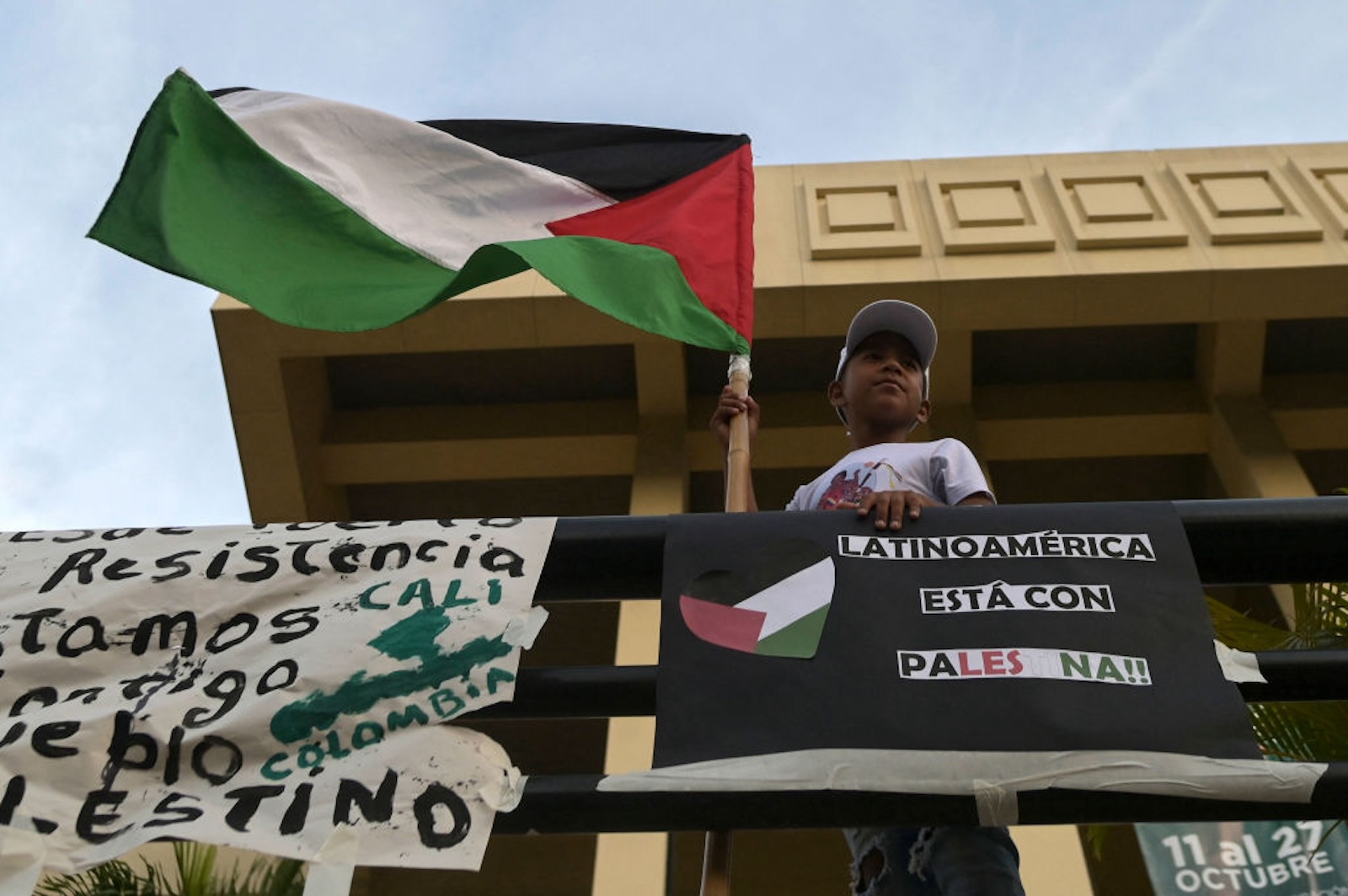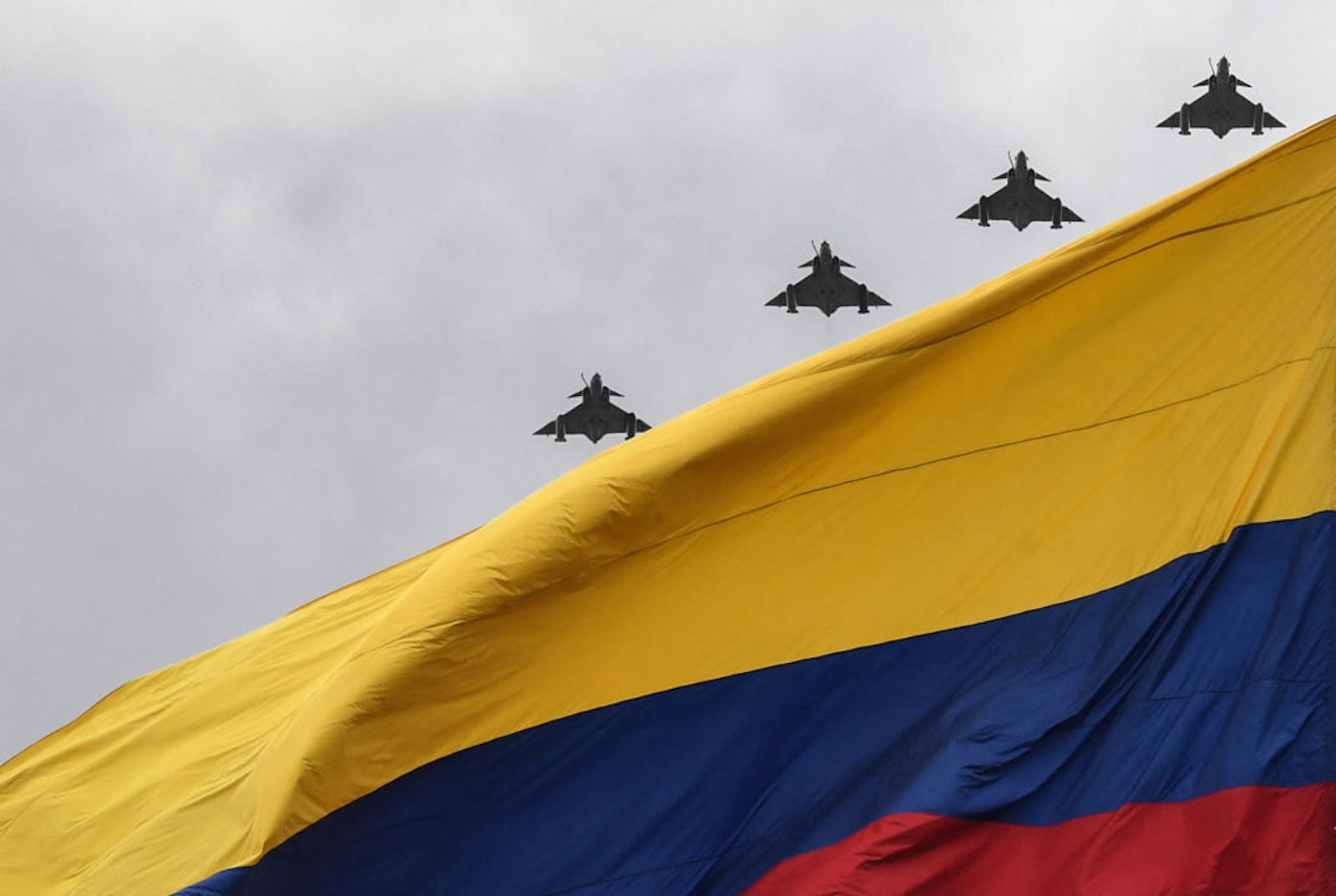(CNN Spanish) — The president of Colombia, Gustavo Petro, had been warning for months: if Israel continued with the “genocide” against the Palestinian people in Gaza—after the Hamas attacks on October 7—it would break diplomatic relations.
This is what he did: this May 2, the Colombian Foreign Ministry announced the breaking of diplomatic relations with Israel that “has not respected the principles of distinction, proportionality or precaution that underpin international humanitarian law.” Measure was criticized by Israel, celebrated by Hamas and raised controversy in Colombia’s center and right-wing political sectors, mainly…
Petro has insisted that Israel’s actions in Gaza constitute “genocide.” Israel has continually rejected this accusation, made not only by Colombia, but also by other governments such as Brazil and South Africa, the latter taking the case to the International Court of Justice in The Hague in December 2023.
Since the Hamas attack on Israel, in which some 1,200 people were killed and more than 200 kidnapped, Israel launched an offensive in Gaza, killing more so far of 34,000 people, according to figures from the Gaza Ministry of Health.
In January, the International Court of Justice (ICJ), the UN’s highest court, ruled that Israel must take “all measures” to prevent genocide in Gaza, but he did not call for a ceasefire at that time nor did he explicitly say that there was genocide. The United Nations special rapporteur on the Palestinian territories, Francesca Albanese, has said that there is “reasonable grounds” to say that what is happening in Gaza is a genocide.
Colombia says it “cannot be indifferent to the enormous and indescribable human suffering that this causes.”
Following Petro’s announcement, Israeli Foreign Minister Israel Katz accused Petro of rewarding Hamas, “the most despicable monsters known to mankind” and called him an “anti-Semitic, hate-filled president.”
The Palestinian embassy in Colombia thanked in a statement “the brave gesture of humanity offered by the Government of the brotherly Colombian people.”
What follows now is the withdrawal of diplomatic officials from both countries, whose Foreign Ministry in a statement this Tuesday did not specify when they will return, nor did it detail whether Israeli diplomats will have to leave the country.
Sectors of the right and center of Colombia reacted against Petro’s decision and questioned whether the protest measure has practical functions in getting Prime Minister Benjamin Netanyahu to end the ongoing actions in Gaza.
What does this breakdown of relationships mean in practice?

A child holds a Palestinian flag next to a sign reading “Latin America stands with Palestine” during a demonstration in support of the Palestinians in Cali, Colombia, on October 19, 2023, amid Israeli airstrikes against Gaza in retaliation for a surprise attack by Hamas on October 7, 2023. (Credit: JOAQUIN SARMIENTO/AFP via Getty Images)
Military cooperation
Colombia and Israel have a long history dating back to 1949, when Bogotá recognized Israel as a State and in 1957 They established diplomatic relations. The historical position of the South American country has been characterized by Israel’s recognition “to live within secure, internationally recognized borders, free from threats and acts of force.” In August 2018, shortly before leaving office, the Government of President Juan Manuel Santos recognized Palestine as a state after signing peace with the now extinct FARC.
In their diplomatic history, Israel and Colombia have signed cooperation agreements in education, they are closely close in economic matters and very close on the military front, one of the biggest concerns of those who oppose the breaking of diplomatic relations.
Regarding military cooperation, Petro said that Colombia will stop buying weapons from Israel. But this April 30, Defense Minister Iván Velásquez referred to it in a political control debate in the Senate and said that Colombia has contracts signed with Israel for the purchase of Barak missile systems and Atmos howitzers, maintenance equipment and logistical support for the KFIR aircraft.
“There are some contracts in force with Israel and those contracts will be fulfilled,” said Velásquez, pointing out that some are valid until December 2024 and others until 2026.
“We are not putting capacity or security at risk, but in any case we intend to diversify suppliers to reduce specific dependencies,” added the Minister of Defense.
The issue of KFIR aircraft is key: “They are the only combat aircraft that Colombia has. Maintenance has to be provided by Israeli companies,” Marcos Peckel, professor of international relations and executive director of the Confederation of Jewish Communities of Colombia.
In January 2023 the Ministry of Defense He said that the fleet of KFIR aircraft began its obsolescence stage starting in December 2023, so it will have a gradual retirement. The current fleet of warplanes has more than 42 years old.
This Tuesday, Velásquez said that the Ministry of Defense is forming a “transition, substitution and diversification” committee in order to diversify suppliers to prevent the State from being subject “due to political circumstances or conditions of various kinds to depending on any country.” “for supplies of equipment for the military forces.

Kfir aircraft of the Colombian Air Force fly over a Colombian flag during a ceremony commemorating Colombia’s Independence Day in Bogotá on July 20, 2021. (Photo by Juan BARRETO/AFP) (Photo by JUAN BARRETO/AFP via Getty Images)
Colombia loses dialogue with Israel
Another consequence that the rupture of relations will bring is that Colombia will lose dialogue with the actors in the conflict for eventual peace negotiations. In January of this year the president Petro proposed to Netanyahu to create a commission to achieve peace between Israel and the Palestinians, as well as the release of hostages. But with this step, Bogotá will no longer be recognized as an interlocutor, at least not by Tel Aviv.
“Colombia is left at that moment without a dialogue scheme with Israel in a conflict in which it permanently talks about the two-state solution and talks about an international peace conference,” added Peckel, who criticized the measure for being “inconvenient.”
“You can be very critical of Israel. We have seen left-wing governments in Latin America that are very critical, such as the case of Chile, the case of Brazil, the case of Mexico, but they have not come to the point of breaking off relations,” he added.
Former President Santos (2010-2018) also expressed the inconvenience of the measure because this, he said, does not contribute to the solution of the conflict between Israel and Palestine.
“Breaking relations with Israel does nothing to contribute to that solution and has negative consequences for Colombians. Our foreign policy must always defend the peaceful solution to conflicts,” former President Santos said in X.
For Mauricio Jaramillo Jassir, international analyst and university professor, Petro’s decision is “coherent” with the warnings he had previously made regarding Israel’s actions.
“This break… is consistent with what Colombia has said… because of the defense it has assumed with international law and human rights,” said Jaramillo Jassir in a video published on X. He says that the decision can be explained, among other reasons, by the warnings that Colombia had already made to cut relations with Israel if it did not comply in a binding manner with the United Nations Security Council resolution on a ceasefire in Gaza.
In defending the Government’s decision, Jaramillo Jassir denies that Petro is “ignoring” Colombia’s diplomatic tradition.
“Colombia is committed to the 1948 convention on the prevention of genocide and that is basically what the country is doing,” said Jaramillo Jassir in X. The analyst points out aggravating factors such as, for example, that “today a good part of the world, the most powerful (some countries in Western Europe and the United States) endorse this genocide.”
“It is up to the global south, to countries like Colombia, Chile, Brazil, Mexico, to protest, defend the right and defend the convention of ’48 so that a genocide does not continue to occur in our face.”
Trade
Israel is Colombia’s main trading partner in the Middle East and Colombia is Israel’s second in South America after Brazil.
Israel covers 80% of Colombia’s trade exchanges in the Middle East and since 2020 a free trade agreement came into effect. In 2022, Colombia bought goods from Israel for US$139 million and sold them US$16 million, according to official data of the Ministry of Industry and Commerce of February 2024.
Colombia’s main export product was coal (expressed as coal and briquettes in the report) and what Israel sends the most to Colombia are radio broadcasting devices, telephones, and medical instruments and devices, according to official figures.
The Colombian Foreign Ministry has said that “all communications related to this announcement will be made through established official channels and will not be public,” so little is known about the scope of this measure.
“So far there’s no information as to whether that’s going to be affected or not,” Peckel said.
And it remains to be seen how the situation continues to develop because “there are issues that we still don’t know about,” Peckel pointed out.
